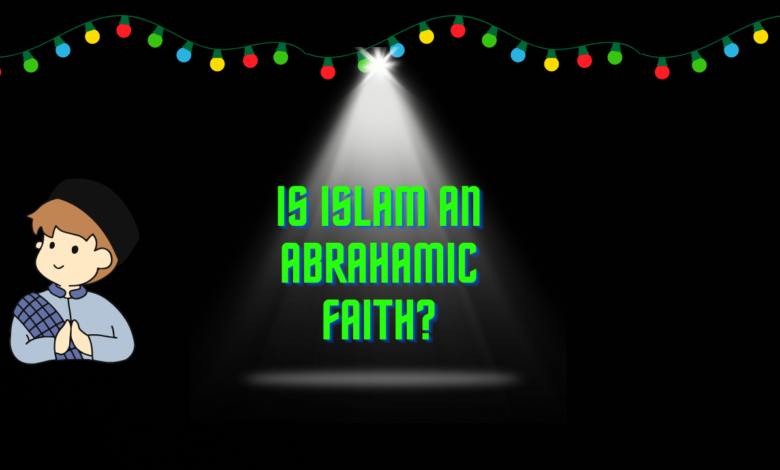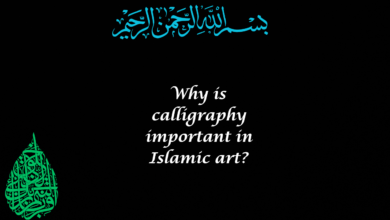Is Islam an abrahamic faith?

Introduction
The world’s major monotheistic religions, Judaism, Christianity, and Islam, are often collectively referred to as the “Abrahamic religions.” This categorization is based on the shared belief in the foundational figure of Abraham, who is revered as a pivotal patriarch and prophet. Among these religions, Islam stands as a significant and distinct Abrahamic faith, drawing connections between its teachings and those of Judaism and Christianity. This article explores the concept of Islam as an Abrahamic faith, highlighting the historical, theological, and textual connections that link these traditions.
The Link to Abraham
At the core of the Abrahamic faiths is the figure of Abraham, a central figure in the religious narratives of Judaism, Christianity, and Islam. According to these traditions, Abraham was chosen by God to be the father of many nations and a prophet who exemplified unwavering faith. In Islam, Abraham, known as “Ibrahim,” holds a unique status as a prophet and is revered for his devotion and submission to God’s will.
Historical Context
Islam emerged in the 7th century CE in the Arabian Peninsula, building upon the religious and cultural foundations of the region. Its teachings were transmitted through the Prophet Muhammad, who is considered the last prophet in the Abrahamic lineage. Islam’s historical ties to the region where Judaism and Christianity had already taken root created a natural bridge to the shared legacy of Abraham.
Theological Connections
Monotheism: One of the most fundamental tenets of the Abrahamic faiths is the belief in a single, all-powerful God. Islam adheres to the concept of monotheism, emphasizing the oneness of God (Allah in Arabic). This echoes the monotheistic teachings found in Judaism and Christianity.
Prophetic Lineage: Islam acknowledges the lineage of prophets from Adam to Muhammad. This lineage includes significant figures like Noah, Moses, and Jesus, who are recognized as prophets in Judaism and Christianity as well. This shared prophetic lineage reinforces the Abrahamic connection.
Scriptures: While the sacred texts of each Abrahamic faith differ, they share common stories and themes. The Quran, the holy book of Islam, contains references to many biblical figures and events found in the Hebrew Bible and the New Testament. This intertextuality highlights the shared heritage of these traditions.
Textual Overlaps
The Quran, Islam’s holy scripture, contains stories and accounts of many prophets from the Abrahamic narrative. Abraham’s story is recounted in the Quran, with emphasis on his unwavering faith, his building of the Kaaba (a central pilgrimage site in Islam), and his willingness to sacrifice his son as an act of obedience to God. The story of Moses is also a recurring theme, underscoring the commonalities between Islam and Judaism.
Conclusion
Islam, as one of the world’s major religions, firmly stands as an Abrahamic faith. Its historical, theological, and textual connections to Judaism and Christianity reaffirm its place within the broader framework of monotheistic traditions. The shared reverence for Abraham, the belief in one God, the interconnected prophetic lineage, and the overlapping narratives in sacred texts all serve as markers of the unity that exists among these faiths. Recognizing Islam as an Abrahamic faith not only highlights its historical ties but also fosters a deeper understanding of the interconnectedness of the world’s major religions.
Is Islam considered an Abrahamic faith?
Yes, Islam is widely recognized as an Abrahamic faith. It shares a historical and theological connection with Judaism and Christianity, tracing its origins back to the prophet Abraham (Ibrahim in Islam).
What is the basis for Islam’s Abrahamic lineage?
Islam considers Abraham to be a central figure and prophet. The Quran, Islam’s holy book, mentions Abraham’s submission to God’s will, which is the foundational concept of Islam. Muslims also believe that the Kaaba in Mecca, a significant religious site, was built by Abraham and his son Ishmael.
How do the Abrahamic faiths relate to each other?
Judaism, Christianity, and Islam are collectively referred to as the Abrahamic religions because they share common theological roots in the figure of Abraham. These faiths emphasize monotheism, a belief in the same God, and a shared ethical framework.
What are the similarities between Islam and other Abrahamic religions?
The Abrahamic faiths share many common elements, such as a belief in one God, ethical teachings, moral codes, and the importance of prayer and charitable acts. They also share some prophets, including Abraham, Moses, and others, although the interpretations of their stories might differ.
Are there differences between Islam and other Abrahamic religions?
While the Abrahamic faiths share core beliefs, there are significant theological differences. For instance, Christians believe in the divinity of Jesus as the Son of God and the savior, a concept not present in Islam. Judaism does not recognize Jesus as the Messiah. Additionally, each faith has its own unique scriptures and religious practices.
How does Islam view Jesus in relation to its Abrahamic lineage?
In Islam, Jesus (known as Isa) is considered a prophet and messenger of God, born to the Virgin Mary. While Islam does not attribute divinity to Jesus, he is highly respected as a significant figure in the prophetic lineage that stems from Abraham.






